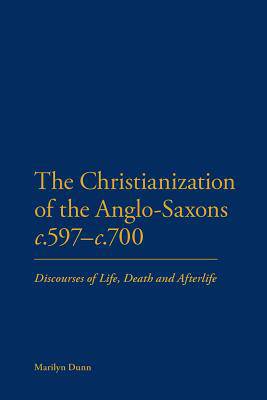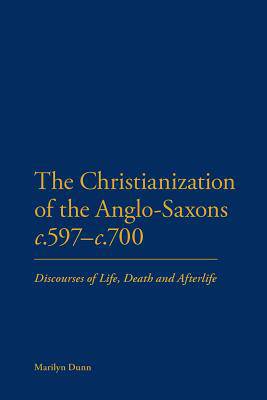
Bedankt voor het vertrouwen het afgelopen jaar! Om jou te bedanken bieden we GRATIS verzending (in België) aan op alles gedurende de hele maand januari.
- Afhalen na 1 uur in een winkel met voorraad
- In januari gratis thuislevering in België
- Ruim aanbod met 7 miljoen producten
Bedankt voor het vertrouwen het afgelopen jaar! Om jou te bedanken bieden we GRATIS verzending (in België) aan op alles gedurende de hele maand januari.
- Afhalen na 1 uur in een winkel met voorraad
- In januari gratis thuislevering in België
- Ruim aanbod met 7 miljoen producten
Zoeken
The Christianization of the Anglo-Saxons C.597-C.700
Discourses of Life, Death and Afterlife
Marilyn Dunn
Paperback | Engels
€ 135,95
+ 271 punten
Uitvoering
Omschrijving
This groundbreaking work treats the Christianization of the Anglo-Saxons as a process of religious change and is the first to establish the importance of Christian doctrines and popular intuitions about death and the dead in the transition, focusing on the outbreak of epidemic disease between 664 and 687 as a crucial period for the survival of Christianity in Anglo-Saxon England. It analyzes Anglo-Saxon conceptions of the soul and afterlife as well as traditional mortuary rituals, re-interpreting archaeological evidence to argue that the change from furnished to unfurnished burial in the late seventh and early eighth century demonstrates the success of the church's attempts to counter popular fears that the plague was caused by the return of the dead to carry off the living. The study employs ethnographic comparisons and anthropological theory to further our understanding of pagan Anglo-Saxon deities, ritual and ritual practitioners, and also considers the challenges confronting the Anglo-Saxon church, as it faced not only popular attachment to traditional values and beliefs, but also gendered responses to, or syncretistic constructions of, Christianity.
Specificaties
Betrokkenen
- Auteur(s):
- Uitgeverij:
Inhoud
- Aantal bladzijden:
- 282
- Taal:
- Engels
Eigenschappen
- Productcode (EAN):
- 9781441110138
- Verschijningsdatum:
- 27/09/2010
- Uitvoering:
- Paperback
- Formaat:
- Trade paperback (VS)
- Afmetingen:
- 156 mm x 234 mm
- Gewicht:
- 408 g

Alleen bij Standaard Boekhandel
+ 271 punten op je klantenkaart van Standaard Boekhandel
Beoordelingen
We publiceren alleen reviews die voldoen aan de voorwaarden voor reviews. Bekijk onze voorwaarden voor reviews.









